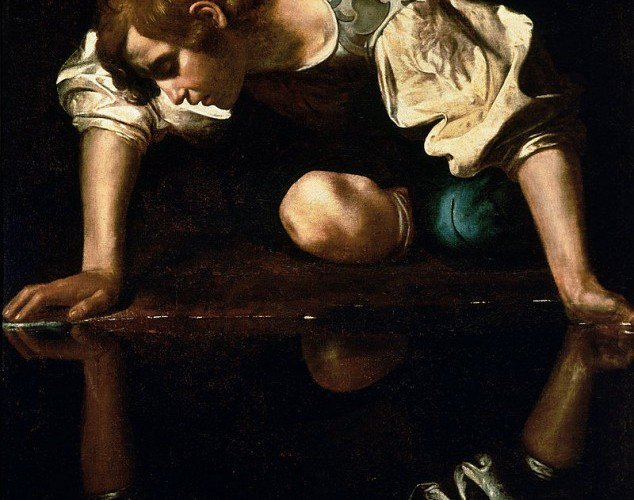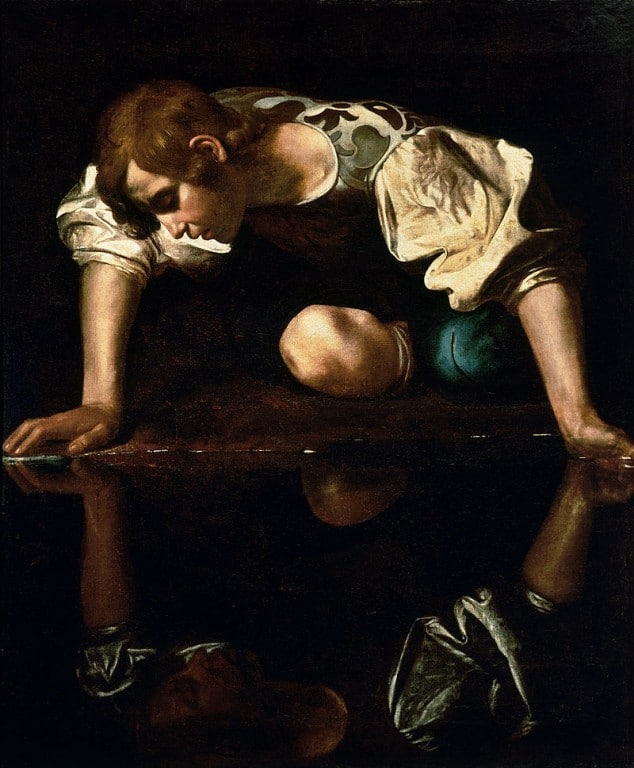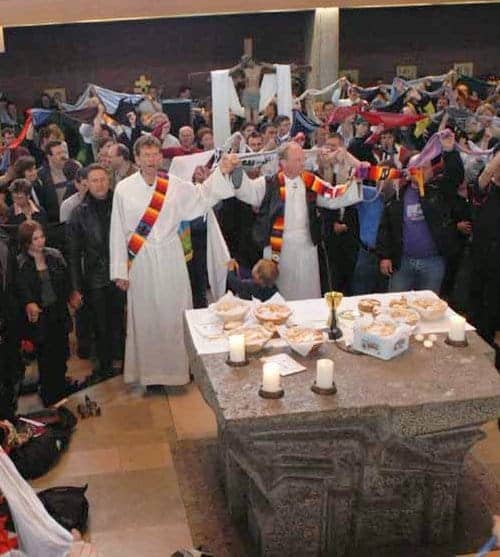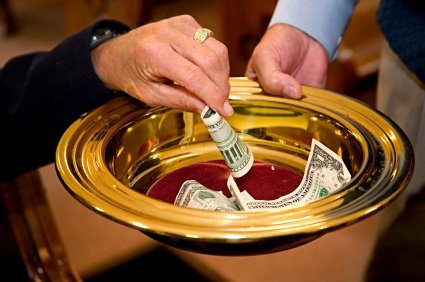A specter is haunting the Church. The specter of clericalism.
What is clericalism? The unchecked behavior of rogue clerics, drunk on their own power, is burning the Church down to Her foundation. Worse yet, few attempts are made to put out the inferno by the hierarchy. Why? It’s simple. Our oldest enemy: Pride.
Do priests have a special and unique brotherhood? Absolutely. But they are not a separate society and they do not play by a different set of rules.
Clericalism is not to be mistaken for reverence. It is self-idolatry.
Clergy are supposed to be above the laity. An ontological change actually occurs during their ordination. While this confers great dignity, even higher than that of any king, the reason they are elevated is because they serve the laity.
A distinction must be made between true clericalists and clerics who are simply terrified of being disliked by strangers. The latter will cave to any pressure whatsoever. Whether it is the homosexualist agenda or feminists, they will wilt like daisies at the thought of possibly having to face being hated by the world. The key difference is that these priests will wilt in any direction. They are terrified of the laity.
When a cleric is infected with clericalist taint, they begin to scorn the laity. Instead of being the very reason that he was ordained to begin with, the laity now exist to glorify HIM, the priest or bishop. They don’t have time for the laity or their concerns. They do what they want. They will ram through changes despite widespread concerns or even Church laws. They are fixated on creating a “legacy” for themselves.
One dead giveaway that a cleric is tainted is that he exercises authority he doesn’t have. A wimp doesn’t exercise the authority he does have. But if a clericalist bishop deems the Latin Mass to be “ridiculous,” he will suppress it even though he isn’t permitted to do so. There are cases of parish priests doing this as well, even when their flock has a strong devotion to the Latin Mass. This is not permitted either.
Clericalists are hung up on their legacy. If the previous pastor was an outstanding priest, they will quickly destroy his work in order to build a new legacy entirely for themselves. Gutting various parish initiatives, wrecking the architecture of the sanctuary, and upending the liturgy to the dismay of all is part and parcel.
Another symptom of clericalism are Masses celebrated in such a way as to emphasize the celebrant as opposed to emphasizing Christ made present. Is the Mass at your parish centered around long, platitude-laden homilies that do nothing to edify the laity? Watch out! And a constant stream stupid jokes or self-referencing anecdotes? Dead giveaway: clericalist.
Clericalism, being a strain of pride, can give itself away by the pettiness and spite that manifests itself in the clericalist. Clericalists will go out of their way to punish even imagined wrongs. They will sack and banish effective priests, suppress organizations that dare interfere with the image of themselves that they are crafting, even dismantle entire parishes.
Clericalism can work in groups as well. Clerics seem loathe to punish each other, even when punishment is richly deserved, even when the laity needs to be protected. In a sense, even this “altruism” in helping out their brother priests is a form of self-glorification. After all, if a man is the same rank as I am, he should be free from the laws that bind the “little people” as well.
If a lay teacher molested a kid in a Catholic school, you can bet every single dollar this broke archdiocese has (both of them) that they’d be fired and charged. Pedophile priest at the same school? He’d simply get reassigned. And if you try blowing the whistle on it, you’ll be accused of as Archbishop Weakland once put it: “squealing.”
His use of the phrase squealing really puts it into perspective. When criminals are caught in a conspiracy, they trust that the others won’t “squeal” on them. It’s a term exclusively used by criminals (or naughty children) to bully other criminals (or naughty children) into not coming forward and admitting their crimes (or hijinks).
The very term implies misdeeds are being committed. It’s effectively a confession. Priests as a community may know many things we laity don’t need to know. But covering up actual crimes for each other and deriding those with the courage (or internal moral consistency) to come forward as “squealers” is way across the line. It is clericalism, pure and simple.
Trust, the same kind of trust that accomplices in a crime rely on, is more important than anything else.
Honestly, if there is some kind of magic ability inherent in the clerical structure of the Church that makes all consequences for bad leadership disappear (or paid off to keep from “squealing”) please show it to us. Because we, the laity, don’t get it.
What we do get is that we have a high regard for priests and therefore equally high standards. When a priest commits a crime, the crime doesn’t go away. It’s actually worse. The bond between a Catholic and a priest is like no other on earth. We trust them with our mortal sins, our souls. When that trust is betrayed, there must be an accounting.
You can bet that empty collection plates, empty pews and emptier souls (listed in the order of importance to a clericalist) are coming to a parish near you, unless someone starts to clean house.





